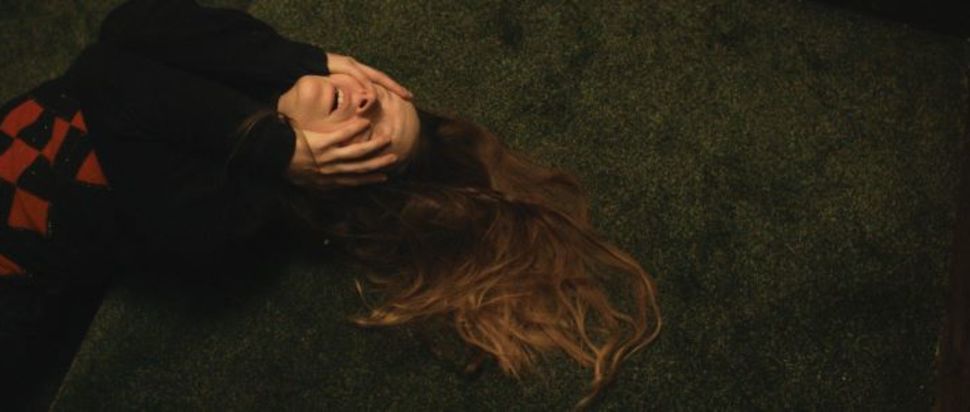Blind Faith: Rose Glass on Saint Maud
You'll struggle to find a more confident debut film in 2020 than Rose Glass's claustrophobic psychological thriller Saint Maud. Glass talks to us about creating a horror film that's as darkly funny as it is disturbing
As far back as Rose Glass can remember, she always wanted to be a filmmaker. This ambition really kicked into gear around the age of ten, when her parents bought a mini-DV camera. “I started nicking that and messing around with it, trying to do little stop motion experiments with toys and stuff,” the 30-year-old told us back in March at Glasgow Film Festival. “And whenever I'd go on family holidays, I'd always end up making weird movies casting my parents, sisters and cousins in various rambling mockumentaries.”
There’s nothing rambling about Saint Maud, Glass’s first feature. It’s one of the most assured debut films in recent memory, in fact, although this deeply unsettling psychological horror does get a little weird in places. It centres on a young palliative care nurse – the Maud of the title, played by elfin Welsh actor Morfydd Clark – who lives a lonely life in some unnamed English seaside town. She’s deeply religious, but her sarky narration suggests she’s not as pious as she might appear. “I hope you will reveal your plan for me soon,” she says rather impatiently to her Lord.
Maud thinks she’s found her calling when she meets her new patient, Amanda (Jennifer Ehle), a former avant-garde dancer clinging on to her hedonistic ways despite her terminal illness. Maud gets it in her head that God wants her to save Amanda’s soul, a mission He communicates via intense bodily sensations that often sees the young nurse writhing around on the floor in ecstasy – episodes that Glass wryly refers to as “God-asms”.
Glass namechecks three filmmakers over the course of our chat: David Lynch, David Cronenberg and Martin Scorsese. Saint Maud’s marbling of nightmarish surrealism and its moments of gut-wrenching body horror (a scene involving drawing pins and a pair of Converse plimsolls will have you squirming in your seat) certainly show influence from the two horror masters named David, but it might be Scorsese whose impact is most strongly felt in Glass’s debut. Specifically his 1976 masterpiece Taxi Driver.
“When I was trying to get some of the execs to understand where I was coming from, I said, ‘Try imagining if Travis Bickle [Taxi Driver's maladjusted protagonist] was a young Catholic woman living in an English seaside town.’” Like Bickle, Maud is a socially alienated misfit with a saviour-complex and quite a different version of reality going on in their head. “I think I like characters with a nice healthy mix of arrogance and self-loathing,” she says.
Another quality Saint Maud shares with Scorsese’s film is an onyx-black sense of humour. “All people, to some extent, are contradictory and complicated, so humour was always incredibly important to me,” says Glass. Not everyone saw the funny side, though. “During development, people would say, 'OK, so you say it's going to be funny. Where's that going to come from?' And I would be like, 'Oh, you know, the jokes. I thought I'd put some in there.' But I think because it's all very deadpan people couldn’t quite see it.”
The Glasgow Film Festival audience we watched Saint Maud with certainly seemed to appreciate its streak of mordant comedy, although we had the advantage over the executives of seeing the lines delivered by actors who are clearly relishing their rich, complex roles. “That was one of the things I loved about Morfydd [Clark, who plays Maud] so much, and partly why she got the role is she's a really fantastic comic actress and her timing is brilliant.”
Casting was another area where financiers were second-guessing Glass's instincts. Another reason she was drawn to Clark as her lead is the actor's “saintly” qualities. “Morfydd can look incredibly pure and sweet and innocent,” Glass explains. “So that's obviously a nice way of misleading people at first. But when we went to the financiers and said she was who we wanted to cast, I think they were a little bit nervous. They were like, ‘She's a fantastic actress, but can she go to the really dark, weird, extreme places the character does?’ So I cut together a little video of Morfydd thrashing around on the floor having a fit of some kind, and that seemed to persuade them.”
Maud’s ‘communing’ with God sends her down a dark, dangerous path. We wonder how Saint Maud will go down with genuinely religious folks. Does she envisage picket lines with “Down With This Sort of Thing” placards? “Maybe the film says something about the psychology of faith, but to me, it's a much more psychological story delving into mental illness. But obviously we're very much experiencing the film through Maud's eyes, and she has an intense relationship with God. So I don't know. I'm curious to see what people think.”
Saint Maud is released 9 Oct by StudioCanal
